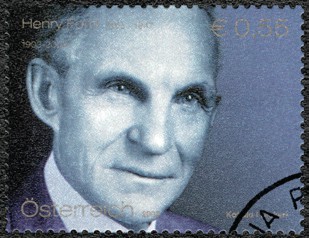Leadership is learned
Want to inspire your peers and colleagues? Distinct characteristics of good leaders teach lessons that will help you grow — perso rsonally and professionally. By Tamekia Reece
By Tamekia Reece
— President John F. Kennedy

Trait: Willingness to learn. The best leaders constantly seek out ways to expand their knowledge, whether it’s through higher education, attending seminars and workshops or self-study.
Lesson: Become a lifelong learner. Keep a to-learn list with skills you want to develop and concepts you want to master. Schedule time for learning. Read or listen to podcasts or audiobooks. Also, network and learn from leaders in and outside of your industry.
— Hilary Clinton, former U.S. Secretary of State and 2016 Democratic presidential nominee

Trait: Optimism. The best leaders have an optimistic outlook, even in the face of challenges. That positive attitude inspires and motivates others.
Lesson: Maintain a sense of positivity in all you do. When you face a bump in the road or failure, don’t wallow in negativity. Look at it as a learning experience and forge ahead with the belief that things will get better.
— Henry Ford, founder of Ford Motor Company

Trait: Confidence. Great leaders exude confidence. People are reluctant to follow someone who seems unsure.
Lesson: Believe in yourself and your abilities. Know that you and the skills you possess are valuable. Speak positively to and about yourself. Use nonverbal communication, such as making eye contact and standing tall, to convey selfassurance. When you appear confident, others are more likely to believe in you and follow your lead.
— Anna Wintour, Editor-in-Chief of Vogue magazine

Trait: Decisiveness. People with top-notch leadership skills are confident decisionmakers. They understand that they must assess information, make a decision and follow it through. Spending too much time waffling between choices or, worse, not deciding at all, can negatively impact a company.
Lesson: Strengthen your decision-making skills. Practice making more decisions, big and small. Take time to think things through but don’t brood over your options or second-guess yourself. Sometimes your decisions won’t be the best, but that’s OK. Make accountability part of your decisiveness. Take responsibility for what happens and learn from any mistakes.